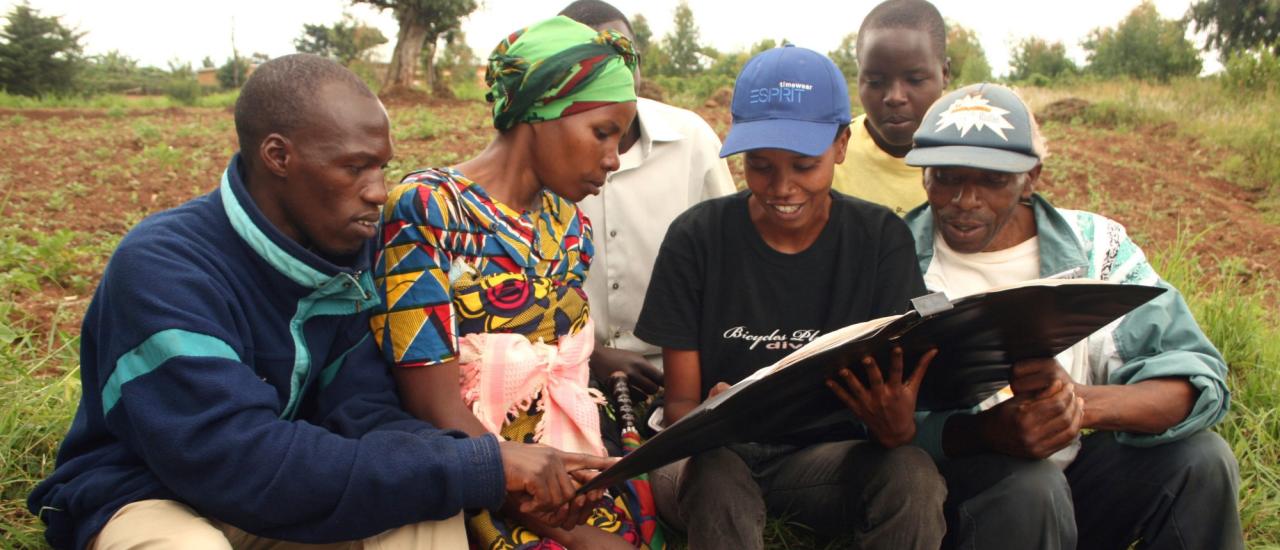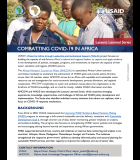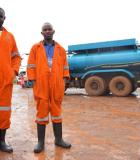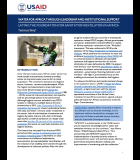In 1990, the East African nation of Ethiopia stood among the nations in most dire need of water development. Seventeen years of war had left its government and systems in disarray. Only 11 percent of its more than 48 million people had access to piped or other improved water sources; the rest used unimproved sources such as unprotected wells and carted drums. Predictably, Ethiopia and countries in similar straits suffered through high rates of communicable, pandemic, and vector-borne disease, child mortality, and other challenges tied to water, sanitation, and hygiene.
Today, Ethiopia’s population has surpassed 100 million, but the magnitude of the country’s success in providing drinking water to nearly half its people in 25 years — despite its diversity, size, and history of war and famine — cannot be overstated. We must ask: How did Ethiopia and other countries in sub-Saharan Africa make big gains to halve the proportion of their people without sustainable access to safe drinking water? The answers should be applied to similar countries and their people so they can become water secure and answer the challenges tied to poor water, sanitation, and hygiene, or WASH.
The USAID Water for Africa through Leadership and Institutional Support (WALIS) project is doing just that. By examining the common elements among countries that met the Millennium Development Goal (MDG) for clean water access in sub-Saharan Africa, we are helping other countries learn to replicate this success and go further toward meeting the ambitious goal of universal access to water under the 2030 Sustainable Development Goals.
Click here to read the full article in USAID's Global Waters magazine.






